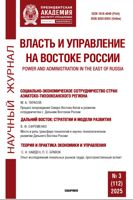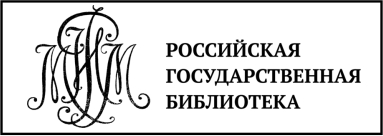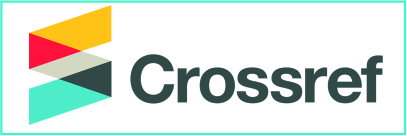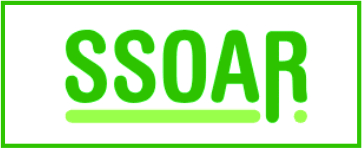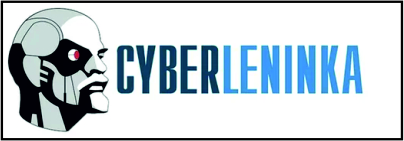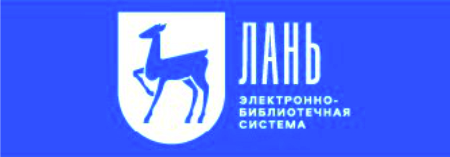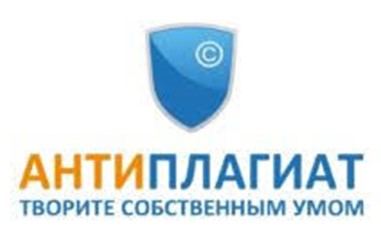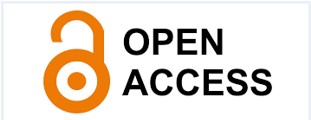Publishing Ethics
The journal “Power and Administration in the East of Russia” adheres to generally accepted ethical principles for publishing scientific materials and is guided in its work by the Declaration of the Association of Scientific Editors and Publishers "Ethical Principles of Scientific Publications", as well as the recommendations of the Committee on Publication Ethics (COPE) http://publicationethics.org/resources/guidelines. Violations of copyright and moral standards are not only unacceptable from an ethical point of view, but also serve as an obstacle to the advancement of scientific knowledge, undermining the authority of science. The editors reserve the right to reject the article in case of a violation of the rules specified below (for more details, see the Procedure for resolving situations related to violation of publication ethics, Rule for retracting an article).
Responsibilities of Editors
Decision on Publication
The Editor-in-chief of the scientific journal "Power and Administration in the East of Russia" is personally responsible for making a decision on the publication of the submitted material. When deciding on publication, the Editor-in-chief of the journal is guided by the reliability of the presented data and the scientific significance of the work under consideration. The Editor-in-chief may be guided by the policies of the journal's Editorial Board, but is limited by applicable legal provisions regarding libel, copyright, and plagiarism. The Editor-in-chief may consult with other editors and reviewers in making decisions about publication.
Impartiality
The Editors must evaluate the intellectual content of manuscripts without regard to the race, gender, sexual orientation, religious beliefs, origin, citizenship, or political preferences of the Authors.
Privacy
Editors and the Journal Editorial Board are required not to unnecessarily disclose information about an accepted manuscript to anyone except authors, reviewers, possible reviewers, and other scientific advisors.
Conflicts of Interest
Editors may not, without the written consent of the Author(s), use in their own research unpublished material contained in the submitted manuscript. Confidential information or ideas obtained during the review shall not be disclosed by the Editors or used by them for personal gain.
The Editor shall not participate in the review of manuscripts in the event of a conflict of interest due to the existence of a competitive, cooperative or other relationship with any of the Authors, as well as with companies or other organizations associated with the submitted work; in such cases, he is obliged to transfer the manuscript for consideration and editing to another Editor.
Actions in Case of Detection of Errors in Published Works
If significant errors or inaccuracies are found in the already published work, the Editor-in-Chief, if necessary, interacting with the Publisher, is obliged to organize the speedy publication of a correction, refutation or clarification.
Participation in the Investigation of Ethics Violations
In the case of ethical claims concerning reviewed manuscripts or published materials, the Editorial Board, together with the Publisher, takes appropriate measures, which generally include interaction with the authors of the manuscript and taking into account the relevant complaint or requirement, but may also include interaction with relevant organizations and research centers (see more details Procedure for resolving situations related to violation of publication ethics).
Responsibilities of Reviewers
Submission of Requirements to the Manuscript and Objectivity
The reviewer is obliged to give an objective assessment of the manuscript. Personal criticism of the Author(s) is unacceptable. The reviewer should express their opinion clearly and reasonably.
Commitment
Any selected Reviewer who considers themselves inadequately qualified to review a manuscript or does not have sufficient time to quickly complete that work should notify Journal Editors and ask that they be excluded from the review process of the relevant manuscript.
Privacy
Any manuscript received for peer review should be treated as a confidential document. It shall not be transferred to or discussed with any person who has not received authority from the Editors.
Recognition of Sources
If there are significant published works corresponding to the subject of the manuscript, but not included in the bibliography, the Reviewer is obliged to indicate them. Each statement that an observation, conclusion or argument has been published previously must be accompanied by a corresponding bibliographic link. The Reviewer shall also draw the attention of Editors to the discovery of a significant similarity or overlap between the manuscript in question and any other published work within the scope of the Reviewer's scientific competence.
Conflicts of Interest
The Reviewer shall not participate in the review of manuscripts in the event of a conflict of interest due to the existence of competition, joint activities or other interactions and relationships with any of the Authors, as well as with companies or other organizations associated with the submitted work.
The reviewer may not, without the written consent of the Author(s), use in their own research unpublished material contained in the submitted manuscript. Confidential information or ideas obtained during the review shall not be disclosed by the Reviewer or used by him for personal gain.
Responsibilities of the Authors
Requirements for Manuscripts
The author of the article presenting the original study should provide reliable results of the work done, as well as an objective discussion of the significance of this study. The data underlying the work must be error-free. The work should contain sufficient details and bibliographic references for possible reproduction. False or obviously erroneous statements are regarded as unethical behavior and unacceptable.
Reviews and articles expressing professional opinion must also be accurate and objective. Articles expressing editorial opinion should be clearly identified as such.
Originality and Plagiarism
The author must ensure that the work presented is entirely original and that when using the work or statements of others, appropriate bibliographic references or citations are provided.
Plagiarism can take many forms, from presenting someone else's work as your own, copying or paraphrasing substantial portions of someone else's work (without attribution), to claiming the results of someone else's research. Plagiarism in all its forms is unethical behavior and is unacceptable.
Multiplicity, Redundancy and Simultaneity of Publications
In general, the Author(s) will not publish a manuscript presenting substantially the same research in more than one scientific journal intended to publish original research. Submitting the same manuscript simultaneously to more than one journal is regarded as unethical behavior and unacceptable.
In general, the Author(s) should not submit the previously published article to another journal.
Acknowledgment of Sources
The contributions of others to the reported work must always be clearly acknowledged. Authors should cite publications that have significantly influenced the nature of the reported work. Information obtained privately, such as through conversation, correspondence, or discussion with third parties, should not be used or reported without the express written permission of them. Information obtained in the course of rendering confidential services must not be used without the express written permission of the Authors of the work performed in the course of rendering these confidential services.
Authorship of the Publication
Only those persons who have made a significant contribution to the conception, development, conduct or interpretation of the presented research may act as authors of the publication. All those who have made a significant contribution should be listed as co-authors. If there are individuals who have made a significant contribution to a particular aspect of the research project, they should be listed as such. All persons who have provided additional work in the interests of the study must be listed in the “Acknowledgments” section. For an appropriate indication of authorship in the manuscripts the editorial staff recommends to use one of the schemes approved by the COPE:
Disclosure and Conflicts of Interest
All Authors are required to disclose in their manuscripts financial or other material conflicts of interest, which may be interpreted as factors that influenced the results or conclusions presented in the work. All sources of financial support for the research project should be disclosed.
Significant Errors in Published Works
In the event of material errors or inaccuracies in its publication, the Author(s) shall inform the Editor or Publisher thereof and cooperate with them in order to withdraw the publication or correct the errors as soon as possible. If the Editor or Publisher has received information from a third party that the publication contains significant errors, the Author(s) must withdraw the work or correct the errors as soon as possible.
Responsibilities of the Publisher
The publisher of the journal "Power and Administration in the East of Russia" should follow the principles and procedures that contribute to the implementation of ethical standards by Editors, Reviewers and Authors of the journal in accordance with the Publication Ethics.
The Publisher shall support the Editors of the Journal in dealing with claims arising from ethical issues and assist in interacting with other journals and/or publishers if this contributes to the proper performance of the Editors' duties.
The publisher is required to follow a code of best practice and implement industry standards regarding ethical compliance, remediation procedures, and revocation of publications.
If necessary, the Publisher shall provide specialized legal support in the form of advice and preparation of legal opinions.
Post-publication Discussions
The Editorial Board of the journal "The Power and Administration in the East of Russia" welcomes open scientific dialogue and considers for publication comments from scientists on articles published in the journal. Comments reflect an opinion or observation regarding the published article. Comments are also sent to the authors of the article so that they have the opportunity to prepare a response. Both the commentary and the authors' response to it (if any) are sent to the experts who participated in the review of the article. The decision to publish comments is made by the Editor-in-chief of the journal "The Power and Administration in the East of Russia". Published comments and responses to them are necessarily linked to the original version of the article to which they relate.
Post-publication Changes in the Published Articles and Retraction Policy
To uphold the integrity of published research, the Editorial board of “The Power and Administration in the East of Russia” follows COPE guidelines in correcting errors or inaccuracies in previously published materials. The main types of changes include Corrections, Supplements, Expressions of Concern, and Retractions. All modifications are documented through a formal notice published on the journal’s website, with a direct reference to the original article.
The decision to publish corrections is made by the Editors of the journal. The basis for making changes may be an appeal from the authors, recommendations from reviewers, members of the editorial board, or a request from the readers of the journal. All changes are published after discussion with the authors of the relevant article.
Correction
Correction is made when an error is discovered in an article or information is missing that does not affect its integrity or scientific significance and does not require a re-review procedure. For example, information about a conflict of interest, research funding, etc. may be clarified/added. Information about the correction made is displayed in the abstract of the work and is accompanied by a short message on the journal's website. Notifications about the correction of spelling errors, typos, and other minor changes are not published.
Policy for Making Changes to the Articles After Their Publication and Retraction of Articles, in Case of Violations
Addendum
Addendum is most often made at the request of the authors of the article, who have received, for example, clarifying data, the absence of which in the article gives an incomplete picture of the phenomenon being described. Any addition to an article must undergo a peer review process. The publication of the Addendum is accompanied by the placement of a notice in the current issue of the journal, with the metadata of the article, a link to it and a brief description of the essence of the changes being made. When the supplement is published, the file with the original version of the article is updated.
Expression of Doubt
An expression of doubt is published if the editors have received evidence of serious violations of scientific ethics or the presence of erroneous data in the article, but the investigation was either not conducted for some reason or cannot be completed at this stage. After the investigation has been conducted/completed, the article may be amended or retracted.
Retraction
An article may be retracted when substantiated evidence demonstrates any of the following violations: the article contains erroneous or fabricated data; plagiarism; the research results have already been published earlier in other journals; copyright or research ethics has been violated; the review was conducted with violations, for example, if the author did not disclose a conflict of interest that could influence the reviewer's or editor's decision to publish the article.
The retraction procedure is initiated following a formal investigation. Upon confirmation of grounds for retraction, the journal will:
– publish an official notice specifying the reasons for retraction on the journal website;
– replace the original article with a watermarked version clearly indicating its retracted status, while maintaining accessibility for reference purposes;
– notify all indexing databases where the journal is included;
– submit information about the retraction to the Retraction Watch database.
In exceptional circumstances, an article may be permanently removed from the journal's website when its content presents a serious threat to the society; it violates legal rights; or its removal is mandated by court order or other legal authority.
Procedure for Resolving Situations Related to Violation of Publication Ethics
Identification of Unethical Conduct
Unethical conduct may be identified and brought to the attention of the Editor or Publisher by anyone at any time. Unethical conduct includes, but is not limited to, the types of conduct listed in the Publication Ethics. In order for an investigation of a violation to be initiated, the person reporting an ethical violation to the Editor or Publisher must provide sufficient information and evidence. Each allegation is considered on a uniform basis with a mandatory final decision or conclusion.
Investigation
The initial decision to investigate is made by the Editor-in-chief, who may, if necessary, seek advice from the Publisher. During the investigation, all necessary data must be collected, but the information must not be disseminated beyond the circle of those involved in the investigation.
Minor Violations
Minor violations may be addressed without involving a wider circle of people. In any case, the Author(s) must be given the opportunity to respond to any suspicions or accusations.
Serious Violations
Serious violations may require notification to the employer of the person accused of violating ethics. The Editor-in-chief, through independent study of the available data or through additional consultations with a limited circle of experts, and, if necessary, with the assistance of the Publisher, must decide on the feasibility of informing the Author's employer.
Sanctions
(in order of increasing severity; can be applied either individually or in various combinations):
- Informing the Author or Reviewer of a suspected misunderstanding or failure to comply with ethical standards.
- A warning letter to the Author or Reviewer, notifying them of ethical violation and warning them of the possible consequences.
- Official publication on the website of the journal “Power and Administration in the East of Russia” about the revealed facts of unethical behavior.
- Publication of an editorial text describing in detail the essence of violations of ethical standards.
- An official letter to the head of organization where the Author or Reviewer works, or to the organization that funds his or her research activities.
- Official withdrawal of an article from the journal (retraction) together with informing the head of the organization or department in which the Author or Reviewer works, the international bibliographic services indexing the journal, and the readers of the journal.
- Imposition of formal ban on publication of the given Author works or on the use of services of given Reviewer for a specified period.
- Reporting about the violation to the professional organization of which the violator is a member, as well as to the supervisory and regulatory authorities of the state authorities, for the purpose of further investigation of the case and taking appropriate measures.
Participation in the Investigation of Ethics Violations
In the case of ethical claims concerning the reviewed manuscripts or published materials, the Editorial Board, in conjunction with the Publisher, will take appropriate measures, which generally include interacting with the authors of the manuscript and taking into account the relevant complaint or requirement, but may also include interacting with the relevant organizations and research centers (see the Procedure for Resolving Situations Related to Violation of Publication Ethics). The standard term for consideration of an ethical claim/complaint by the Editorial Board is 14 working days. All inquiries should be sent to the official email of the journal rio-dviu@ranepa.ru.
